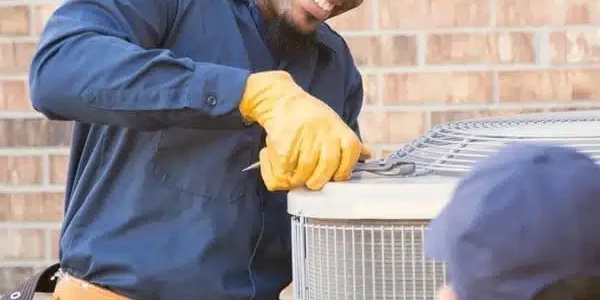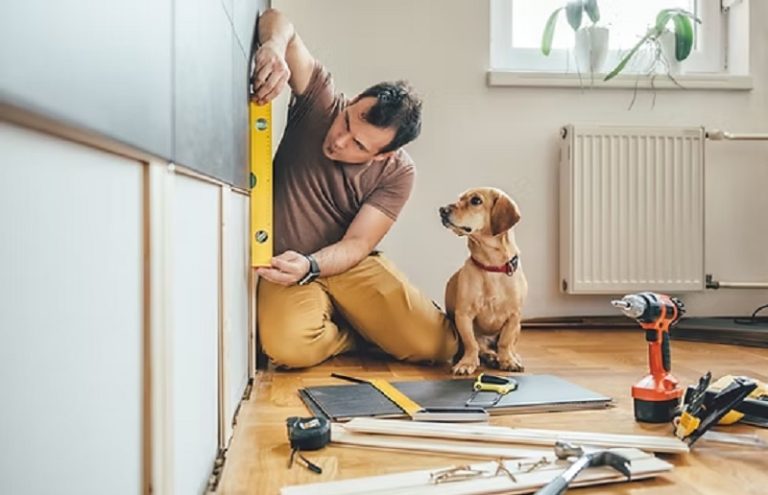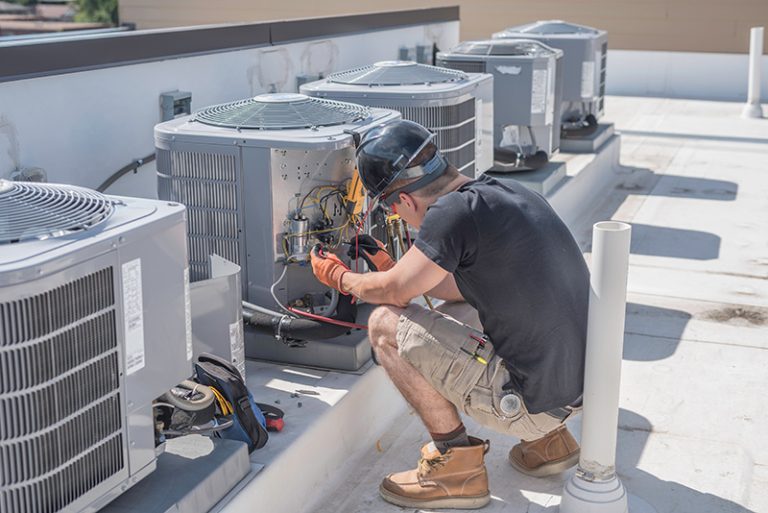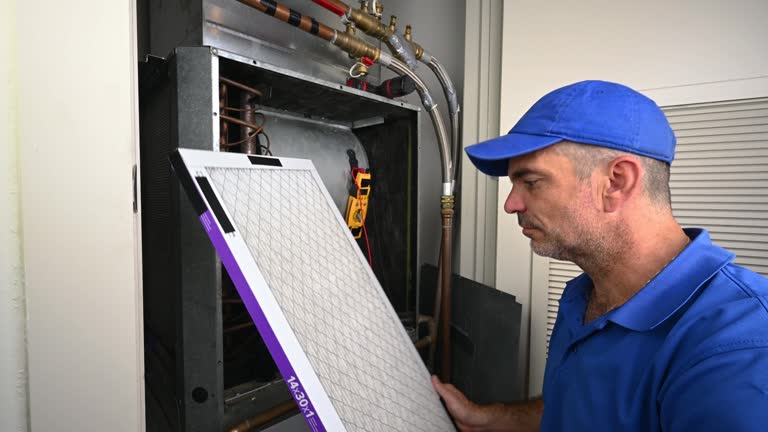
When it comes to optimizing the performance of your HVAC system, two key concepts often come into play: maintenance and ventilation. Both are integral to the system’s efficiency, longevity, and the quality of air circulating throughout your home or building. However, despite their importance, many homeowners and building managers often find themselves unsure about which strategy is more crucial or how to balance the two. While HVAC maintenance ensures the proper functioning of the system, ventilation plays a critical role in managing indoor air quality. But how do these two factors compare? And how can you prioritize them for optimal comfort and energy efficiency?
In this article, we will explore the nuances of HVAC maintenance and ventilation, compare their roles in a well-functioning system, and help you understand which strategy works best under different circumstances.
The Importance of HVAC Maintenance
HVAC systems are complex machines, consisting of various components like air handlers, compressors, coils, filters, and ducts. Each of these elements plays a vital role in ensuring that your heating, cooling, and air circulation needs are met. Like any machine, an HVAC system requires regular care and attention to ensure that it operates efficiently and avoids costly breakdowns. This is where maintenance comes into play.
Key Benefits of Regular HVAC Maintenance
-
Enhanced Efficiency: Over time, dust, dirt, and debris can accumulate in critical components such as coils, air filters, and fans. When this happens, the system struggles to perform at its best, which can result in increased energy consumption. Regular maintenance—such as cleaning and replacing air filters, inspecting ductwork, and ensuring that coils are free of debris—helps the system run more efficiently, saving you money on energy bills.
-
Extended Lifespan of the System: HVAC systems are a significant investment, and their lifespan can be dramatically extended with proper maintenance. A well-maintained system is less likely to experience wear and tear, reducing the need for premature replacements. Routine maintenance checks, such as refrigerant level checks, inspecting the thermostat, and ensuring the compressor is functioning correctly, help to keep the system running smoothly for years.
-
Improved Air Quality: While regular HVAC maintenance focuses on the system’s functionality, it also impacts air quality. A clogged air filter, for example, can reduce airflow and circulate dust, allergens, and pollutants throughout your home. By regularly replacing or cleaning filters and checking for any obstructions in the ducts, maintenance ensures that the air remains clean and healthy, especially for individuals with respiratory concerns.
-
Fewer Breakdowns: Preventive maintenance helps to identify and address minor issues before they turn into costly repairs. By scheduling regular inspections, a technician can identify problems like worn-out parts, leaks, or faulty wiring early on. This reduces the chances of a breakdown, which is often not only inconvenient but also expensive to repair, especially during peak heating or cooling seasons.
Common HVAC Maintenance Tasks
To ensure your HVAC system operates efficiently, here are some common tasks that should be part of your regular maintenance schedule:
-
Replacing air filters: This should be done every 30 to 90 days, depending on the filter type and environmental factors.
-
Cleaning coils: Coils, both evaporator and condenser, can accumulate dirt, hindering the system’s ability to absorb and expel heat.
-
Checking refrigerant levels: Ensuring that the refrigerant is at optimal levels allows the system to cool effectively.
-
Inspecting ducts for leaks: Leaky ducts can reduce airflow and increase energy consumption.
-
Calibrating the thermostat: Ensuring the thermostat is correctly calibrated helps maintain desired temperatures without overworking the system.
The Importance of Ventilation in HVAC
While maintenance focuses on the internal workings of the HVAC system, ventilation is about how air moves throughout the indoor environment. Proper ventilation is essential not just for comfort but also for health, as it ensures a constant supply of fresh air while removing stale, polluted air. Ventilation involves the exchange of indoor air with outdoor air, which can be achieved either through natural ventilation or mechanical means, such as exhaust fans or an HVAC system with an integrated ventilation feature.
Key Benefits of Proper Ventilation
-
Improved Indoor Air Quality: One of the primary roles of ventilation is to remove indoor pollutants like carbon dioxide, volatile organic compounds (VOCs), dust, and moisture. Without proper ventilation, these contaminants can build up in the indoor air, leading to poor air quality, which can affect both comfort and health. Ventilation helps maintain a balance of oxygen and carbon dioxide, ensuring that the air you breathe is fresh and clean.
-
Moisture Control: Ventilation also plays a key role in controlling indoor humidity levels. Excess moisture can cause mold and mildew growth, which can compromise indoor air quality and damage property. By improving airflow, ventilation helps to regulate humidity levels, preventing moisture buildup in areas like bathrooms, kitchens, and basements.
-
Enhanced Comfort: Beyond air quality, ventilation also contributes to overall comfort. Good ventilation helps maintain a consistent temperature and humidity level, preventing the air from feeling stale or stuffy. It can also help regulate the temperature by removing excess heat from certain areas, such as kitchens or attics.
-
Energy Efficiency: Effective ventilation can complement your HVAC system, reducing the load on heating or cooling components. For instance, during mild weather, fresh outdoor air can be introduced to naturally cool or warm a space, reducing the need for your HVAC system to engage in full heating or cooling cycles. This can lower energy consumption and decrease your utility bills.
Types of Ventilation Systems
There are several types of ventilation systems available, each with its specific benefits:
-
Natural Ventilation: This relies on open windows, vents, or architectural design to allow fresh outdoor air to enter and push stale air out. While it’s cost-effective, it’s not always reliable, especially in areas with poor air quality or extreme temperatures.
-
Exhaust Ventilation: This system removes indoor air by using fans and vents. It’s ideal for controlling moisture and odors but typically doesn’t provide a balanced supply of fresh air.
-
Supply Ventilation: This method introduces fresh air from the outside into the building while exhausting indoor air. It’s more effective at controlling air quality but may not always address moisture problems.
-
Balanced Ventilation: This system provides an equal supply of fresh outdoor air and exhausts indoor air. It’s ideal for maintaining both air quality and humidity control, especially in tightly sealed homes.
Maintenance vs. Ventilation: What Works Best?
Both maintenance and ventilation play vital roles in ensuring your HVAC system works efficiently and provides optimal indoor air quality. However, the balance between the two depends largely on your specific needs, environmental conditions, and the age or condition of your system.
-
Maintenance is non-negotiable. Without proper maintenance, your HVAC system will likely underperform or fail prematurely. Regular maintenance ensures the system is working at its highest efficiency, reducing energy consumption and extending its lifespan. It also helps to maintain clean air by keeping filters and coils free of dust and debris.
-
Ventilation, on the other hand, directly impacts the quality of the air you breathe. In modern homes with tightly sealed windows and insulation, ventilation is often the more critical factor for maintaining air quality. If your home or building does not have proper ventilation, no amount of HVAC maintenance can replace the need for fresh air circulation.
In many cases, it’s not a matter of one versus the other. Both maintenance and ventilation are integral to the overall performance of an HVAC system. While maintenance ensures that the system runs efficiently and reliably, proper ventilation ensures that the air you breathe is clean and healthy.
Conclusion
To achieve optimal comfort and air quality, homeowners and facility managers should not see HVAC maintenance and ventilation as competing strategies but as complementary ones. Regular maintenance of your HVAC system helps improve energy efficiency, extend the lifespan of your system, and ensure that it operates effectively. Meanwhile, proper ventilation addresses indoor air quality, preventing moisture buildup, pollutants, and stale air. By balancing both, you can enjoy a comfortable, energy-efficient, and healthy living environment. Whether you’re dealing with seasonal changes or addressing specific air quality concerns, prioritizing both maintenance and ventilation will ensure that your HVAC system works its best, year-round.
You May Also Like
How to Improve Your Home wit ...
16 April 2025
Is Your HVAC Missing These R ...
17 February 2025
Everything You Need to Know ...
07 January 2025
Popular Post
Expert Insights on Installing Solar Power Systems
28 October 2025Local Plumbing Expertise You Can Trust in Killeen
22 August 2025Innovative Solutions for Refurbishing Commercial Spaces
14 August 2025How to Improve Your Home with Valuation and Agents
30 April 2025Recent Posts
- Expert Insights on Installing Solar Power Systems October 28, 2025
- Local Plumbing Expertise You Can Trust in Killeen August 22, 2025
- Innovative Solutions for Refurbishing Commercial Spaces August 14, 2025
- How to Improve Your Home with Valuation and Agents April 30, 2025
- The Beginner’s Guide to Design in Home Improvement April 24, 2025
- How to Improve Your Home with Maintenance and Repair April 16, 2025
- Why Your Roofing Strategy Needs a Flat Roof April 10, 2025
Archives
- October 2025 (1)
- August 2025 (2)
- April 2025 (10)
- March 2025 (2)
- February 2025 (7)
- January 2025 (8)
- December 2024 (6)
- November 2024 (6)
- October 2024 (6)
- September 2024 (5)
Categories
- Cleaning & Maintenance (5)
- Gardening & Outdoor (5)
- Home Decor (5)
- Home Improvement (5)
- HVAC (5)
- Moving (5)
- Plumbing (6)
- Real Estate & Property (5)
- Roofing (6)
- Smart Home (6)





